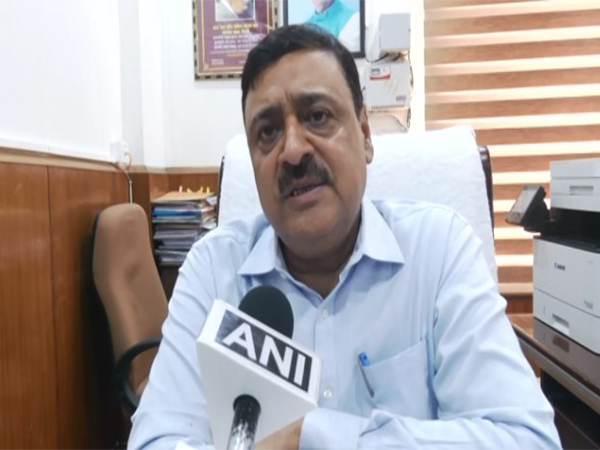Indian Chamber of Commerce submits memorandum to 16th Finance Commission on Assam's developmental priorities
Sep 27, 2024

Guwahati (Assam) [India], September 27 : The Indian Chamber of Commerce (ICC) on Friday submitted a detailed memorandum to Chairman of the 16th Finance Commission, Arvind Panagariya, outlining key recommendations to accelerate industrial and economic growth in Assam and the broader North-East region.
The memorandum was presented by Sarat Kumar Jain, Chairman of ICC's Assam and Meghalaya Chapter, and Ishantor Sobhapandit, Regional Director, ICC-North East.
The memorandum emphasized the need for targeted financial interventions across several sectors vital for Assam's sustainable growth.
The ICC called for special grants to improve industrial infrastructure in the region. This includes enhanced road connectivity, rail networks, ports, and power supply, particularly along the North East Industrial Corridor.
The memorandum also advocated for support in developing inland waterways and multimodal logistics hubs to improve transportation efficiency.
To ensure a reliable power supply for industrial growth, the ICC urged investment in upgrading the power transmission and distribution network. This would provide a steady power supply to meet industrial demand and reduce power outages.
Recognizing Assam's agricultural potential, the ICC recommended the allocation of funds to develop agro-based industries. This includes modernizing technology, upgrading storage facilities, and setting up agroprocessing units.
The memorandum stressed the need for incentives for industries that align with circular economy principles and promote sustainability.
The ICC urged for incentives targeting renewable energy development, including solar energy parks, small hydropower plants, and biomass energy production. The chamber also requested additional support for research and development in clean technologies to position Assam as a hub for green energy solutions.
Addressing the region's vulnerability to climate change, the ICC recommended dedicated funding for climate resilience projects such as flood control, embankment strengthening, and river management.
The memorandum also proposed investments in climate-smart agriculture and infrastructure designed to withstand extreme weather conditions.
As the North East has abundant resources such as bamboo, oil, coal, limestone, and a favorable climate for agriculture and horticulture, these resources remain underutilized due to a lack of value addition and processing industries; therefore, the ICC recommended promoting value-added industries in agriculture, horticulture, and forestry, particularly in sectors like bamboo processing, rubber, and tea.
Encourage public-private partnerships (PPP) for setting up modern processing units for industries such as tea, spices, organic farming products, and natural gas. Also, to provide tax incentives and grants for research and development (R&D) to improve resource utilization and product innovation, particularly in environmentally sustainable industries.
The memorandum highlighted the need for specific funds to support Assam's growing startup ecosystem. ICC suggested establishing venture capital funds, incubators, and accelerators to foster innovation in the Micro, Small, and Medium Enterprises (MSME) sector, providing much-needed resources for local entrepreneurs.
With Assam's strategic location, the ICC recommended financing cross-border trade infrastructure, including border markets, integrated check posts, and the development of international trade routes. These steps would strengthen Assam's economy while enhancing regional cooperation opportunities with neighboring countries.
In conclusion, the ICC urged the 16th Finance Commission to recognize Assam's potential in the agro-processing, renewable energy, and tourism sectors while ensuring adequate financial support to address climate risks and infrastructure gaps.
The memorandum emphasized that these recommendations would enable Assam to leverage its unique strengths, propelling the region towards sustainable and inclusive growth.

















